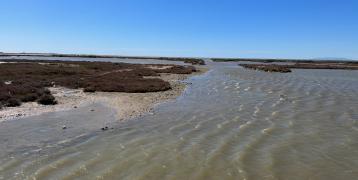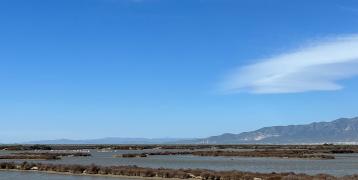The hottest summer: call to action for policymakers
While summer has traditionally been a time for taking a break and recharging batteries, this past summer has (again) been a source of anxiety for many, with raging wildfires, epic floods, and other climate-change-induced catastrophes leaving a trail of devastation in their wake.
The World Meteorological Organisation reported that August 2023 was the hottest August on record by a large margin. It is estimated that the holiday month has been around 1.5°C warmer than the preindustrial average (1850-1900).
Changing patterns and policy responses
The summer months in cities are becoming more stressful. The urban environment is heating up more than the countryside due to the ‘heat-island-effect’ resulting from sealed soil, asphalt and bricks, exhaust heat from traffic and air-conditioning.
This effect is strongest in large cities, and that is also where we see the first policy responses. Paris has drafted a new Bioclimatic Urbanism Plan with a central objective to fight against rising temperatures, amongst others by adding 300 ha of green spaces over the next 20 years. The US city of Phoenix in Arizona has created a new ‘Office of Heat Response and Mitigation’ in 2021 with a mission to “avoid death caused by heat and reduce heat in the city”.
The hotter climate also provokes already the first changes in vacation patterns. A recent study underlines that tourism, one of Europe's largest economic sectors, will face considerable stress and that tourism demand is being significantly affected by climate conditions. The findings reveal that coastal regions will be the most impacted areas and detect a clear North-South pattern in tourism demand, to the benefit of the North.
Today, one cannot help but notice a remarkable shift in attitudes towards climate change. It is not about doing something “good for the environment” anymore; it has become a question of avoiding deaths and ever-increasing costs to individuals and society.
The European Climate Adaptation Strategy points out that economic losses from frequent climate-related events are increasing. In the EU, these losses already average EUR 12 billion per year, with most losses (EUR 9 billion) caused by drought affecting agriculture, the energy sector and water supply.
Recent research also found consistent evidence of the socioeconomic impacts of heat exposure in the workplace. Actual productivity losses at the global level are nearly 10% and are expected to increase up to 30–40% under the worst climate change scenario by the end of the century.
Vulnerable regions are mainly low-latitude and low- and middle-income countries with a greater proportion of outdoor workers, but include also areas from developed countries such as Southern Europe.
Closing the action gap
Climate change is a global problem that can only be resolved at the local level. The good news is that techniques, technologies and nature-based solutions are readily available to help cities and regions facing the challenges of climate change.
Cities can integrate climate mitigation in their town planning, locate the hottest areas and strategically create more green infrastructures and reduce emissions from transport and industry.
They can also regulate the building and construction markets or try out so-called ‘super cool’ materials that act like natural air conditioners and can decrease the temperature in the cities and buildings.
Regions can work with nature-based solutions to better protect and restore natural habitats. Restoring coastal wetlands for example, will not only protect citizens and visitors, it could also save the insurance industry – an economic sector not linked with nature-based solutions at first sight (around EUR 50 billion annually from flood damage loss).
The socioeconomic costs of inactivity towards climate change are tremendous and they are particularly felt at local and regional levels. It is also here that local authorities are required to close the ‘action gap’ and implement solutions that mitigate climate change for the well-being of its citizens and the protection of the local economy.
Policy solutions
Discover the policy solutions that are available on this topic.
By Astrid Severin, Thematic Expert for a greener Europe and Europe closer to citizens and Katharina Krell, Thematic Expert for a greener Europe and connected Europe
Astrid is a senior expert with over 25 years of experience in regional development policies. She has a track record in circular economy, renewables, biodiversity, climate adaptation and nature-based solutions. Astrid has authored several studies and policy papers and leads the organisation and implementation of peer reviews, matchmakings and interregional policy learning events.

Katharina has 20 years of experience in the areas of renewable energy, energy efficiency, smart cities and circular economy. She is specialised in supporting the uptake of results of EU-funded projects in form of policy recommendations, good practices, technologies for commercialisation or knowledge for further research.




